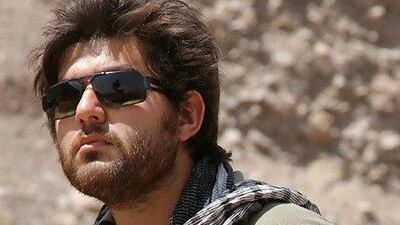From tomorrow until Wednesday the Dubai International Film Festival and the Pavilion Downtown Dubai are hosting a three-day screening of a triple bill of films as part of the Focus on Iran programme. We spoke to the director Morteza Farshbaf, who will be showing his debut feature, Mourning, and participating in a Q&A on Tuesday.
Tell us about Mourning
It's a road movie, the story of a couple and a nine-year-old boy who take a trip from the north of Iran to Tehran. The trip takes about 12 hours and the whole movie is set in this one day. We learn that something bad has happened to the boy, but he doesn't know what, and the couple have to break this bad news to him. The story is how they manage to mourn.
We understand you're a protégé of the great Abbas Kiarostami. How did this come about?
In 2003 I was studying in the Arts University of Tehran. After a couple of years I met Kiarostami during one of his workshops. He was working on a project in the north of the country and needed someone who knew the area. Since I'm from that region and my parents live there, I helped him. After finishing my studies, I didn't carry on to do my masters like most other film students, but went to Kiarostami's workshop.
Has the success of Asghar Farhadi's A Separation (2011) helped Iranian filmmakers such as yourself?
A Separation was really good for us. After that movie, Mourning screened across France for three weeks and at the Museum of Modern Art in New York and other US cities.
If A Separation and the new wave of Iranian cinema from Asghar Farhadi didn't exist, I don't think that similar audiences would have wanted to watch the first feature film of a young Iranian director such as myself. It shows that now people are watching us, that A Separation was highly influential and that Iranian cinema is alive.
In Abu Dhabi last year, Asghar Farhadi said that while the success of A Separation made him very proud, it also made the authorities more sensitive to him and his next films. Have you noticed increased difficulties for filmmakers in Iran?
Absolutely. After A Separation won the Oscar, authorities weren't happy at all because it came from America. Now they're trying to make it difficult for filmmakers to express themselves. There have been problems for Jafar Panahi, Bahman Ghobadi has left the country, Farhadi is now working outside the country and Abbas Kiarostami has not worked in Iran for six years.
When you make films in Iran, it's a gamble. You have to be prepared for any situation because you never know the exact measure of censorship. All you can do is concentrate on your work. I have a project in the next four months, and in one scene the woman has a dog in her house. I've just been told that I cannot put the dog in the house.
Morteza Farshbaf will present Mourning on Tuesday at 7.30pm at the Pavilion Downtown Dubai. The Focus on Iran programme also includes Maziar Miri's Felicity Land on Monday at 8pm and There Are Things You Don't Know on Wednesday at 7.30pm. All screenings are free. For more information visit www.dubaifilmfest.com

